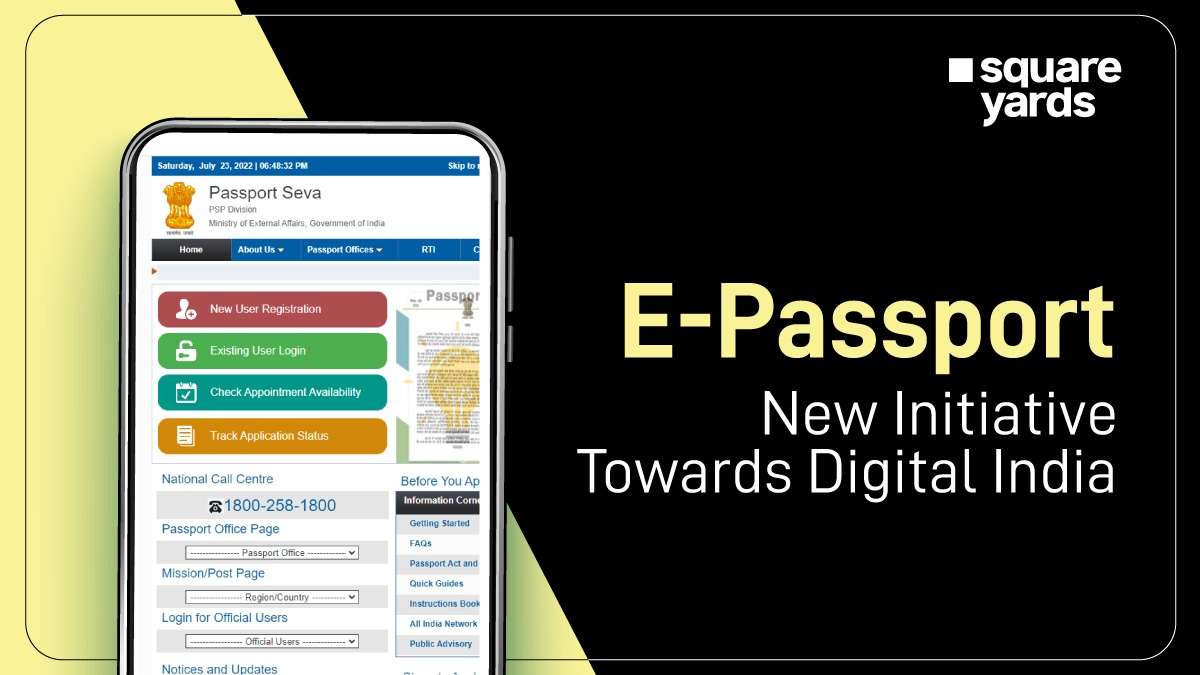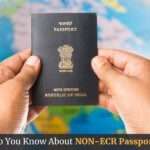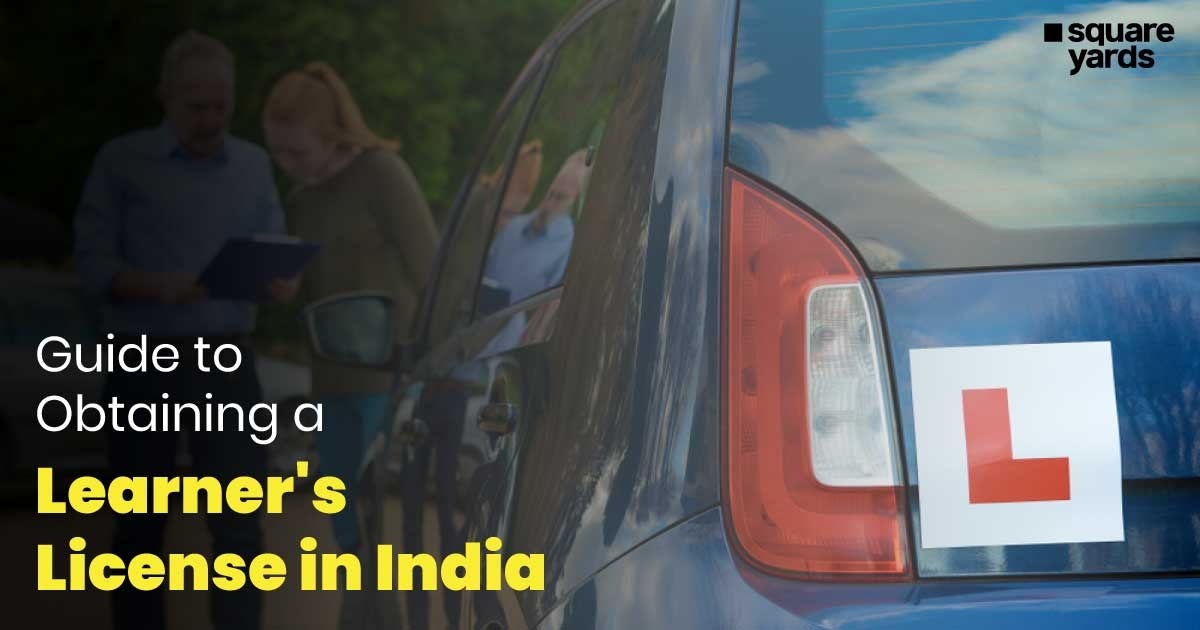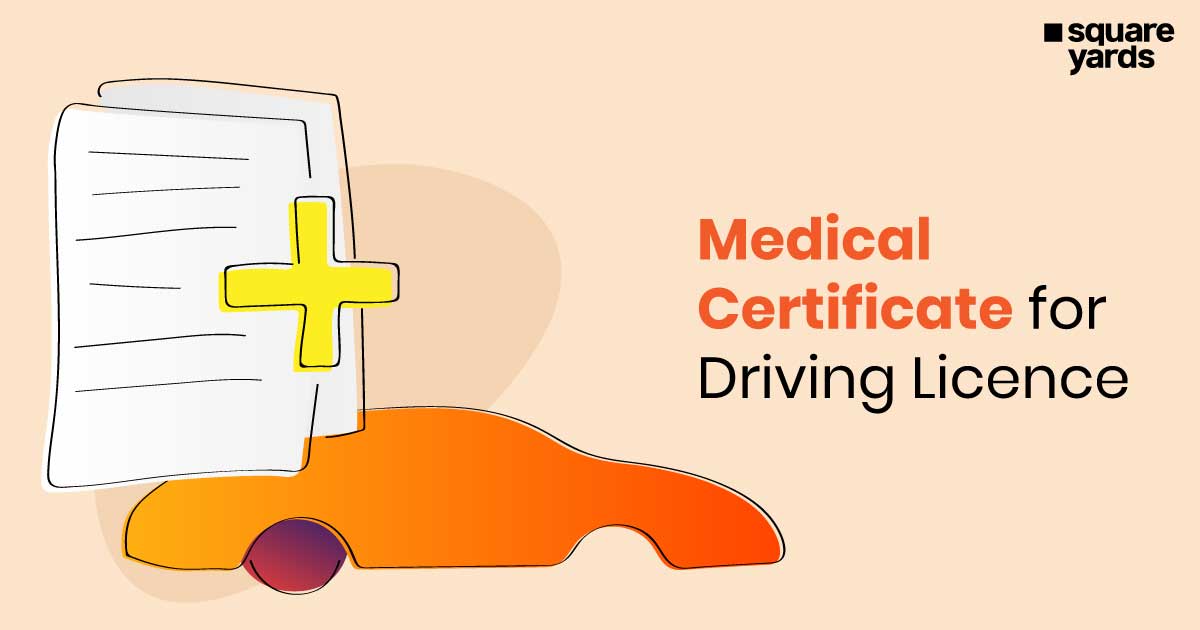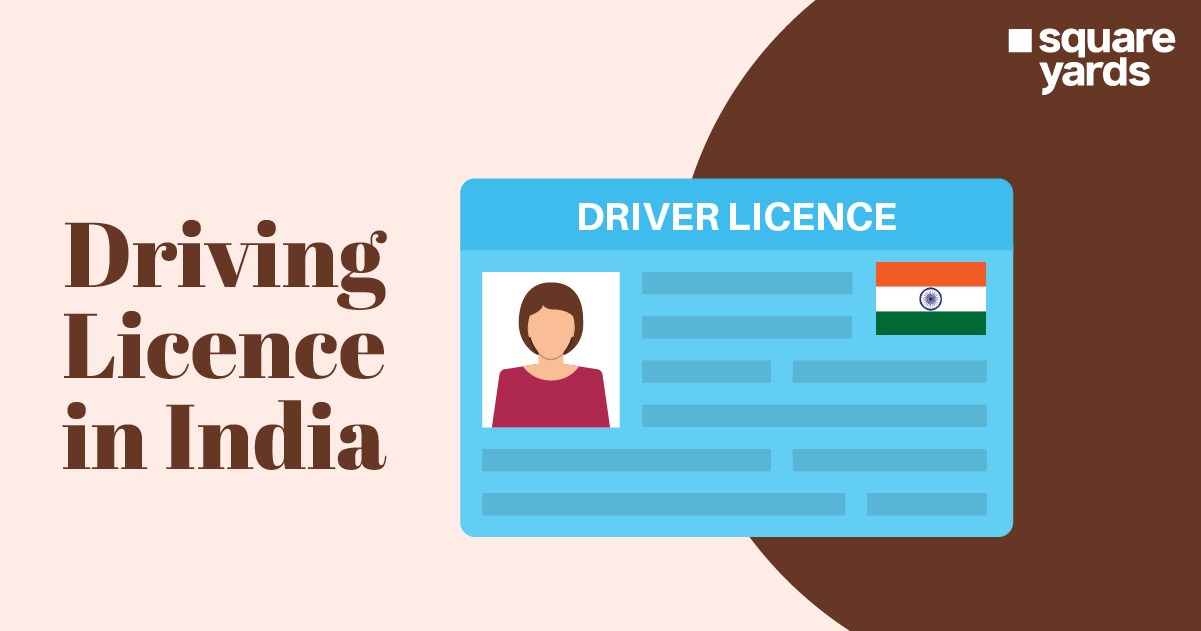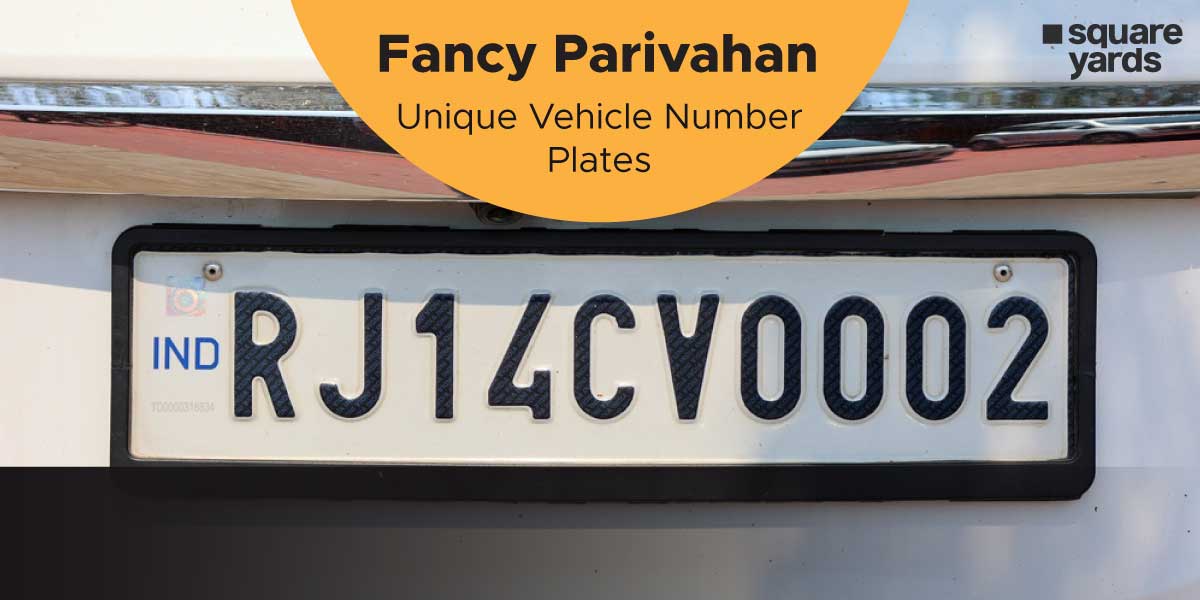The new India is the digital India, where the theft of information will become the toughest. To comply with the growth factor, the Government of India joined hands with the Passport Authority of India, the Ministry of External Affairs, and India Security Press to launch e-passports in the country.
Launching the new passports will make it easy for the government and citizens to be on the same page when travelling. It will also help the citizens avoid long queues and get their passports scanned in no time.
In this article, get to know how the e-passports’ new initiative will be applied, its launch date, steps to apply, the e-passport application form, benefits, features and more in detail.
Table of contents
- What is an E-Passport?
- Benefits of an E-Passport
- Features of E-Passport
- Launch of E-Passport in India
- How to Apply for an E-Passport?
- Who is Eligible for E-Passports?
- Documents Required for an E-Passport
- How to Download the E-Passport?
- What is Biometric Data, and How it Will be Used in E-passport?
- How is an E-Passport Different from a Standard Passport?
- What is the Working Mechanism of E-Passport?
- E-Passport Check Key Points
- Where Can You Use an E-Passport?
- FAQ’s about E-Passport
What is an E-Passport?
E-passports are biometric chip-based passports which are further used for automated e-passport check gates. The biometric data on the digital passport include the date of birth, name, and other crucial information about the passport holder on the chip. The enhanced security feature of the passport will help in avoiding any fraud.
The information accumulated on the chip will be digitally signed. Hence, the passport authority will detect any theft of data, authentication, and tampering of the details.
IIT Kanpur and the National Informatics Centre (NIC) in the company of External Affairs Ministry officials and India Security Press has been developing software for the e-passport check. The new digital passport comes with a higher level of security and better quality papers with the top-notch printing quality. The Finance Ministry will soon be launching chip-based passports in India. The approval for the new passport has been given to the Indian Security Press (ISP), Nashik, to acquire the electronic recognition inlays needed to produce e-passports compliant with the International Civil Aviation Organization.
Benefits of an E-Passport
The new digital passports are full of benefits for the citizens of India, as listed below:
- The citizens can save time instead of standing in long queues for their passports to get scanned and checked, as they will get scanned fast now.
- The E-passport will have a few features that make this document safe and secure.
- The safety features will also prevent fraud or any other misuse of the document.
- The data stored with the digital passport cannot be removed afterwards.
- If the chip inside the e-passport is damaged, it will lead to hassles in the authentication of the information.
Features of E-Passport
With the launch of e-passports in India, the citizens get offered a plethora of features with the documents, which are as follows:
- The memory chip space of the passport will have a space of 64 kilobytes.
- The chip includes the data about the cardholders’ fingerprints and their photograph.
- The e-passport will also have holographic images engraved with the capability to change colours when kept under lights.
- The biometric details of the citizens will also be engraved in the e-passports.
- E-passports will also have the demographic information of an individual.
- Iris scan of passport holders will be taken to ensure the highest protection of the document.
- Coloured photographs and digital signatures are other information stored in the e-passports.
Launch of E-Passport in India
India Security Press, Nashik, has already been awarded the contract to purchase digital contactless inlays. This adheres to International Civil Aviation Organization standards and the operating system needed for chip-enabled e-Passports.
Once the ISP has completed Nashik’s procurement process, digital passports will be issued. Since TCS will be the e-technology passport provider, it will also be announcing its launch in the last months of 2022 or the beginning few months of 2023. The government will still be in charge of other sovereign tasks, like issuing passport booklets.
Tej Bhatla, Company Business Head of TCS, explained that there would be some paper in the document. The main cause is the existence of procedures like visa stamping. However, it will drastically reduce the need for paper through automation.
All 36 passport offices will be able to issue e-passports once the parts of the personalisation system integrate with the conventional passport issuance system.
How to Apply for an E-Passport?
Follow the below-mentioned steps to complete the e-passport application form:
Step 1: Visit the official portal of Passport Sewa Kendra (PSK). If you are a new user, click on the option ‘New User Registration’ on the homepage.
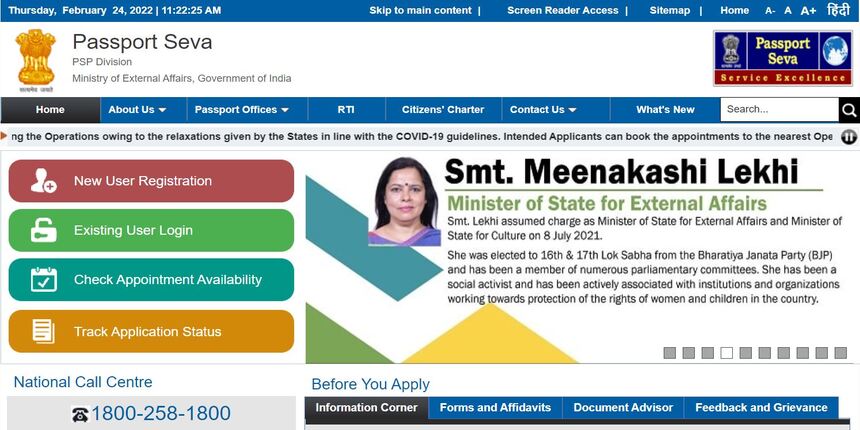
Step 2: After selecting the new user registration option, the portal will redirect to a new page. There choose to ‘Register By’ either at Passport Office or CPV Delhi.
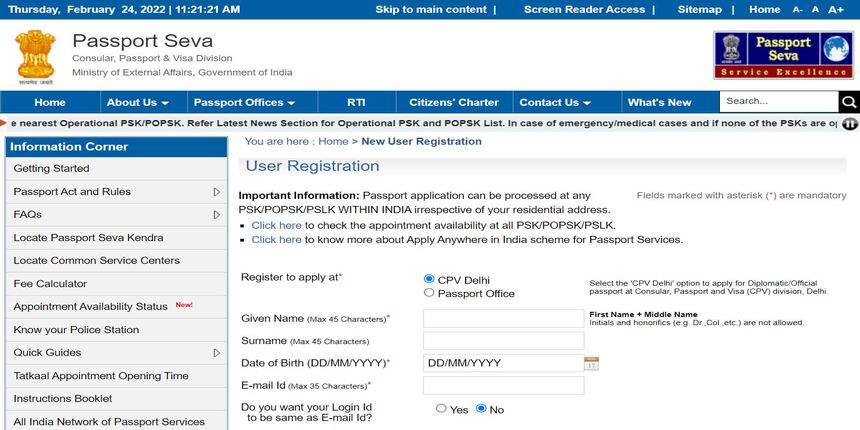
Step 3: Enter the details as the portal asks, such as passport office, given name, surname, etc. Enter the login credentials, too (if you already have one).
Step 4: Next, click the ‘Register’ button after filling out the form.
Step 5: Attach all the required documents as asked by the portal after making the payment for the registration fee. After all the details and documents are verified and the details entered are correct, the authority will issue the e-passport in the stipulated period.
Who is Eligible for E-Passports?
According to the Passport Authority and the Government of India, the eligibility criteria for e-passports are not defined, and all Indian citizens are eligible to obtain a digital passport. The citizens can change their standard passport to the new one by filling out e-passport forms.
Documents Required for an E-Passport
To apply for an e-passport, it is crucial to submit a few documents to the authority for successful application submission and approval. The documents required to complete the e-passport form are as follows:
- Address Proof in utility bills, Aadhaar Card, bank passbooks, PAN Card, etc.
- Birth Date Proof in the form of birth certificate, Voter ID Card, eaadhaar Card, Matriculation Certificate, Driving Licence, etc.
- If the e-passport form is for re-issuance of a passport, then the holder must submit their original passport, a copy of the first and last page of their passport, ECR/Non-ECR pages, and observation pages.
How to Download the E-Passport?
The e-passport is yet to be launched in India. As far as the updates say, it is impossible to download the e-passport from the website. However, the chip-embedded passport can be updated on the Digi locker after it is issued and downloaded from there. Because of the security features, the authority made sure that the passport details were not hampered and not downloaded.
Don’t miss It!
| Passport | Passport: Application Process, Documents Required & Types |
| Passport Seva | Passport Seva Kendra: Registration & Application Process |
| Apply Passport Online | How to Apply for a Passport Online |
| Documents for Passport | List of Documents Required for Passport Application |
| Passport Verification | Police Verification for Passport |
| Renew Passport | How to Renewal Passport Online & Track Status |
| Passport Application Form | How to Fill Passport Application Form? |
| Tatkal Passport | How to Apply for Tatkal Passport? |
| Reschedule Passport Appointment | How to Reschedule Passport Appointment Online? |
| Student Passport | How to Apply for Student Passport? |
What is Biometric Data, and How it Will be Used in E-passport?
Simply described, biometrics is a stat that links particular physical characteristics. Utilising retina, fingerprint, and face scans ensure that the data is distinct, which is necessary. The drawback of e-passports is that people’s physical characteristics cannot be compared to those of another person anywhere in the world. One digital item that embraces this technology is cell phones with fingerprint and facial recognition capabilities. The goal is to integrate the best artificial intelligence into passports to simplify travel.
According to the most recent news updates from e-passport India, your fingerprint will be a crucial biometric factor. Your Aadhaar information and current passport details are already in the government database, giving the database your digital fingerprints. It will be simpler to compare and confirm a person’s identification by encoding this data in an e-passport through some kind of chip, especially at the immigration desk.
How is an E-Passport Different from a Standard Passport?
The e-passport has an integrated chip that stores the passport holder’s personal data. The e-Passport India will include a chip with 64 kb of data storage and a built-in rectangular antenna that will be affixed to the rear of the passport.
The chip is made to hold information from up to 30 international journeys initially.
However, the anticipated e-passport for India in 2022 is predicted to incorporate both the passport holder’s photo and biometric information like fingerprints.
The TCS group aims to provide the best technologies to stop harmful behaviour. E-Passport authentication will be unsuccessful if the chip of an e-passport is tampered with.
What is the Working Mechanism of E-Passport?
The e-passports will have a rectangular antenna kind of chip embedded with 64 KB space, storing all the biometric information of the cardholder. Since the new passport is different from the traditional passport, it can get scanned. The scanning is secured, and the embedded information can not be copied or altered.
After the e-passport forms are filled and verified, the Department of Foreign Affairs will issue enhanced security chip-enabled e-Passports to citizens. The passport holder’s personal information would be digitally signed before being saved on a chip in the passport book. The system is expected to tell if someone tampers with the chip, preventing identity authentication from working. Additionally, the presence of an e-chip will stop data breaches, offering excellent protection for private information.
E-Passport Check Key Points
- The citizens’ biometric information will be used to issue the new passports.
- The information on the passport will be digitally signed and will be embedded in the passport chip.
- Any tampering with the information can lead to failure in passport authentication.
- The India Security Press will print the new passports in Nashik.
- Until now, passports were issued as a booklet, but with e-passport, it will be introduced as a chip-based document.
- The first e-passport was issued to Pratibha Patil on June 25, 2008, in India by the Indian Passport Authority.
- Currently, 120 countries around the globe have been issuing e-passports, and the rest of the countries, including India, are in the race to be the next.
Where Can You Use an E-Passport?
Just like the traditional/standard passport, the new e-passport can also be used for travel-related situations where one is required to prove their identity. The new passport can be used for both international and domestic travel purposes. E-passport check posts will also give citizens fast access and help them avoid long sequences. It can also be used to furnish identification at hotels and other places.
E Passport Latest Updates
India Ranks 87th in World’s Top Power Passports’ List
The most recent results of the “Henley Passport Index: Q3 2022 Global Ranking” reveal that Spain, Germany, Japan, and Singapore have the strongest passports in the world. With a score of 60, India is rated 87th on the list, giving its citizens access to 60 countries without a visa. India was ranked 90th in 2018 while 82nd in 2019 and 2020. Throughout the 17-year span of the Henley rankings, India’s position in 2006 at number 71 was its best.
FAQ’s about E-Passport
Q1. Can I get an e-passport online?
Yes, you can get an e-passport online through the official portal of Passport Sewa Kendra (PSK). Go to the portal and click on ‘Registration’, and next, go to the option of ‘Apply for Fresh/Re-Issue Passport’ and fill in the details as asked by the portal. Book an appointment and complete the application procedure to get the digital passport issued.
Q2. Can I download an e-passport?
It is impossible to download an e-passport from the official PSK portal. However, a scanned copy can be available on the Digi locker and downloaded whenever required.
Q3. What is the difference between an e-passport and a normal passport?
The digital passport (e-passport) is a chip-based travel document-based passport with the biometric identification feature with safety features for secured travel and authentication of information. On the other hand, a physical passport is also a travel document issued by the government of India that an individual must carry while travelling.
Q4. How do I change my old passport to an e-passport?
To apply for an e-passport from an old passport, the passport holder must submit the physical document back to the authority. The digital document will be allotted to the person with the same number but a different validity period.
Q5. Are e-passports started in India?
The e-passports will be rolled out in India by the end of 2022 or in the starting months of 2023 as per the passport authority and the Indian Government.
Q6. How long will it take to get after filling up the e-passport application form?
The e-passport is being delivered by express delivery, it will take 7 to 10 days for delivery. If the document is being delivered by normal delivery, it might take 15 to 21 days for the e-passport delivery.


